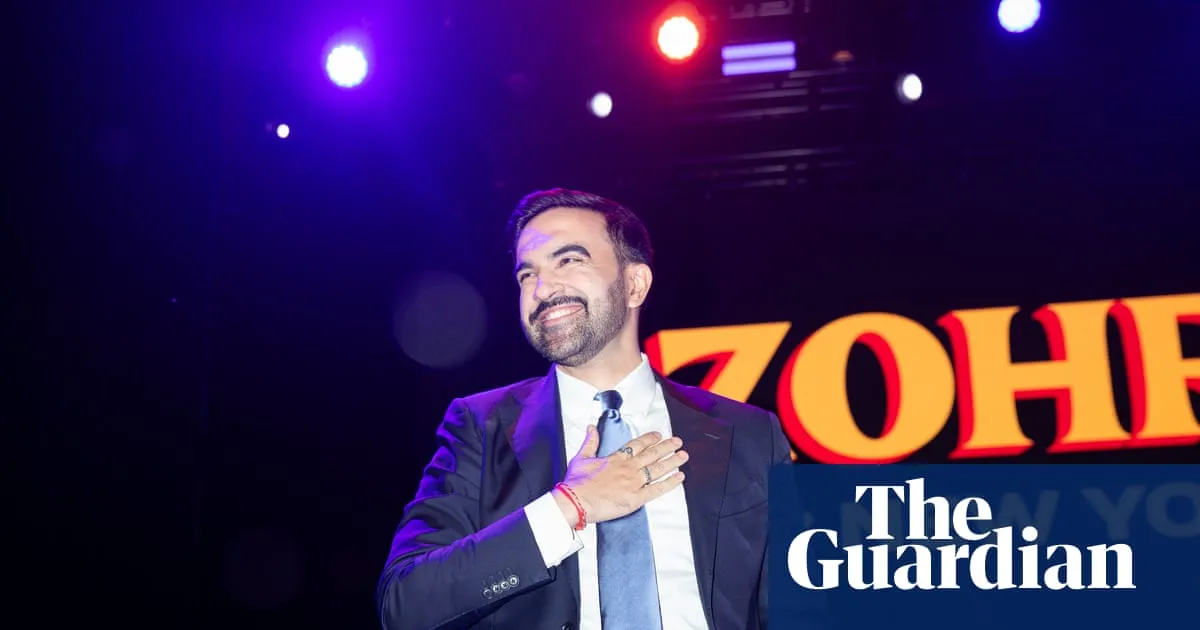
Democratic nominee Zohran Mamdani made history on Tuesday by being elected as the 111th mayor of New York City. At just 34 years old, Mamdani not only became the city’s first Muslim mayor but also its first South Asian mayor and the youngest in over a century. His victory came after defeating notable opponents, including former governor Andrew Cuomo and Republican candidate Curtis Sliwa, securing more than 50% of the vote. Cuomo finished second with just over 40%, while Sliwa garnered slightly above 7% of the ballots cast.
The atmosphere at Mamdani’s election night party at the Brooklyn Paramount in downtown Brooklyn was electric. Supporters erupted in joy when the Associated Press announced his victory. Cheering and hugging ensued, marking a significant moment in the city's political history. Mamdani's win aligns with a broader trend of Democratic successes across the nation, such as Congresswoman Abigail Spanberger becoming Virginia’s first female governor and Mikie Sherrill defeating her Trump-backed opponent in New Jersey.
Mamdani’s journey to this historic win began when he launched his campaign for mayor last fall as a relatively unknown state assemblymember from Queens. His campaign focused on key issues such as affordability, earning him significant traction among voters. His platform advocated for freezing rents on rent-stabilized units, building more affordable housing, raising the minimum wage to $30 an hour, and making public transportation free, among other progressive initiatives.
Fuelled by small-dollar donations, a robust volunteer network, and a savvy social media strategy, Mamdani's grassroots campaign gained momentum leading up to the June Democratic primary. He stunned the political establishment by defeating Cuomo by nearly 13 points, appealing to a diverse coalition that included many young and first-time voters.
After his primary defeat, Cuomo, who resigned as governor in 2021 amid sexual harassment allegations he has denied, chose to remain in the race as an independent candidate. Despite this, polls consistently showed Mamdani maintaining a lead over both Cuomo and Sliwa. Throughout the campaign, the two candidates frequently clashed over their records and visions for the city, with Mamdani accusing Cuomo of being beholden to wealthy donors and corporate interests.
Mamdani's campaign attracted significant support from national progressives, receiving endorsements from figures such as Bernie Sanders and Alexandria Ocasio-Cortez. Other prominent New York leaders, including Jerry Nadler and Letitia James, the state attorney general, also threw their weight behind him. Notably, even New York Governor Kathy Hochul endorsed Mamdani, despite previous policy differences.
Despite his growing popularity, Mamdani faced scrutiny regarding his age, experience, and progressive agenda. He encountered backlash for his criticisms of the Israeli government, particularly in light of recent military actions in Gaza, complicating his relations with some Jewish groups. Furthermore, he was the target of Islamophobic attacks, including derogatory comments from Elise Stefanik, a prominent Republican.
During the campaign, Mamdani condemned Cuomo for laughing along with a conservative radio host who made offensive comments about him. Earlier, he accused a Super PAC supporting Cuomo of “blatant Islamophobia” after they circulated manipulated images of him.
The mayoral race gained national attention with politicians and commentators weighing in. Even former President Donald Trump criticized Mamdani, labeling him a “radical” and a “communist.” Trump endorsed Cuomo just before the election, suggesting that a Mamdani victory would jeopardize federal funding for New York City.
Mamdani’s background is compelling; born in Uganda to Indian parents, he moved to New York City at the age of seven and became a U.S. citizen in 2018. In July, Trump even threatened to revoke his citizenship, an act Mamdani condemned as an assault on democracy.
Despite facing significant challenges, Mamdani's campaign has inspired a nationwide movement among progressives, with reports indicating that his run encouraged over 10,000 individuals across the country to consider pursuing political office. His historic victory not only reshapes the political landscape of New York City but also serves as a beacon for change and representation in American politics.